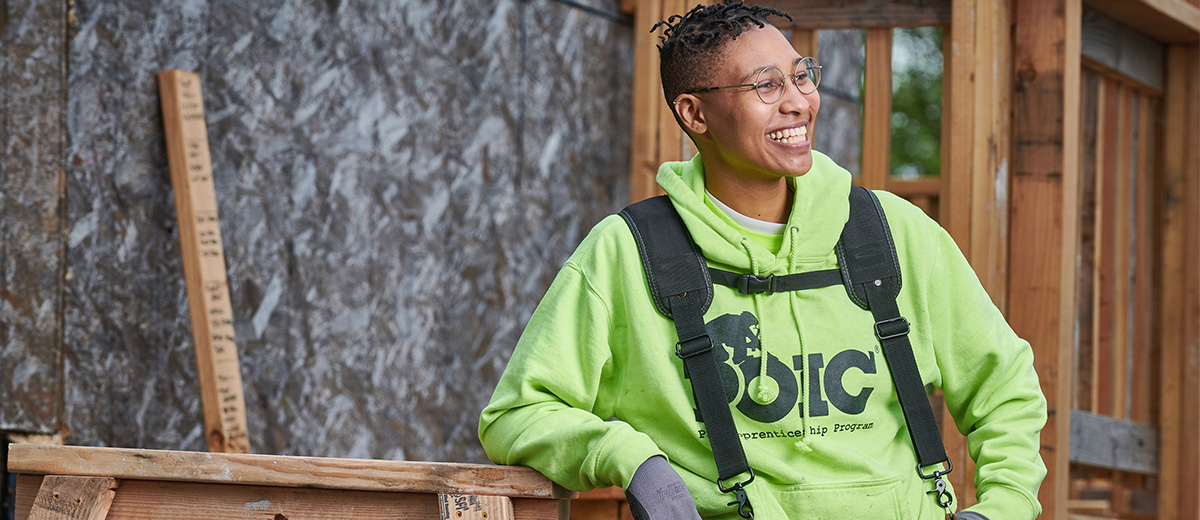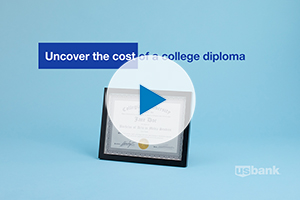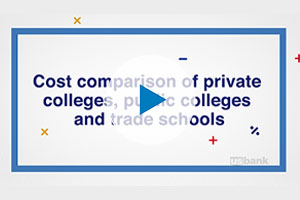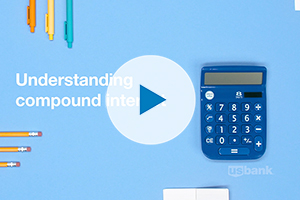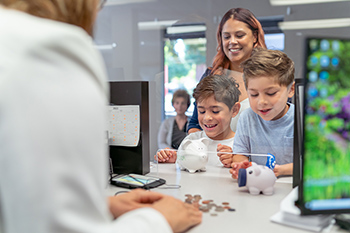As a young person, you may already have a savings account, but opening your first checking account is also an important step. Checking accounts are a good place to put your money for everyday needs. It can help you take control of your money when you land your first job or if you want to spend some graduation money without carrying around a bunch of cash. It's a secure and convenient way to access your money and using one can help you practice good spending habits.
But with all the features and rewards out there, how do you know which a checking account is the best choice for you? It’s important to understand all your options — and read the fine print — before you choose.
Below are six questions you should consider before opening a student checking account.
1. What are the fees?
While many banks charge monthly maintenance fees for checking accounts, some also offer accounts specifically designed for students with low, or no, monthly fees. It’s important to keep in mind that other fees could be assessed depending on the account type and usage, such as a fee for using your ATM at another bank, for example. And some accounts may require a minimum balance or direct deposit to waive monthly maintenance fees.
Think about how you plan to use your account, including how much money you expect to keep in it before deciding if the terms of a checking account might work for you. Keep in mind, services like money orders or cashier’s checks may incur additional fees.
2. Do you need a minimum deposit or minimum balance?
You may need to save up some money to meet a minimum deposit or to stay above a minimum balance requirement for a checking account. The amount required, if any, differs from bank to bank, and sometimes from one account type to another. Going below your minimum balance may result in extra fees, so saving enough money before opening your account can pay off in the long run. It’s a good habit to check your account balance often to avoid any additional fees, if applicable. A good way to stay on top of your account balance is with a mobile banking app.
3. How can you access your money?
Be sure you understand all the ways you can get your money. Does the bank offer online and mobile banking so you can access and review your accounts whenever you want? Both these tools make it easy to track your spending, pay bills, send money, deposit checks and more.
Also, it’s smart to find out where the bank has branches and ATMs. Is it a convenient walk, bike or drive to get to one? Most banks have an ATM locator online or on their mobile banking app.
Keep in mind that if the ATM you select is not owned by your bank, you may be assessed a surcharge by the owner of the ATM. Also, some banks charge fees for each ATM transaction. Be sure you understand these fees before choosing the bank and account that best suits your financial needs.
4. Are there limits on accessing your money?
Many checking accounts have limits in place to protect your account in case it’s compromised. For instance, there may be a cap on how much money you can withdraw in a 24-hour period. And many banks won’t let you deposit a foreign check or foreign currency at an ATM (you’ll need to go into a branch for these transactions). Make sure you’re aware of these safety measures and how they might affect you.
5. How can you avoid overdrafts and overdraft fees?
Overdrafts — spending more than is in your account — can lead to expensive fees, and you should make every effort to avoid doing so. Online and mobile banking tools can help you monitor your transactions and available balance. For example, you can set up alerts to let you know when your account has reached a certain balance. And many banks let you transfer money from a savings account to a checking account to cover an overdraft.
Some banks also offer overdraft protection: if you qualify, a line of credit can allow debit and ATM transactions to be processed even if your account is out of funds. You need to opt in to these services, and they often involve additional fees or interest rates that can add up. It’s best to practice sound financial planning and avoid overdrafts entirely.
6. Will my bank grow with me?
You won’t be a student forever. Make sure that the banks you’re considering also offer products and services that you might need in the future, like savings accounts, credit cards, auto loans or mortgages. Also, check if the bank offers resources to help you grow financially. For example, see if they have online education resources, phone support and financial counseling or advisory professionals.
Opening your first checking account means you’re taking responsibility for your finances. Do some research, and know what you’re getting before you sign up.
Ready to get started with your own checking account? Learn more here.






